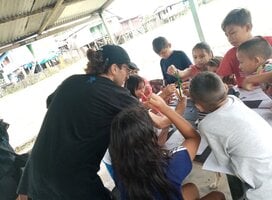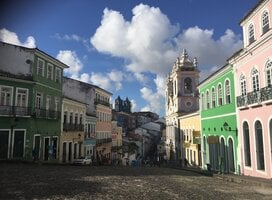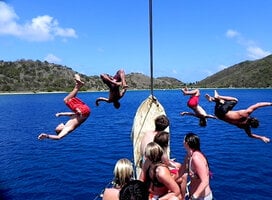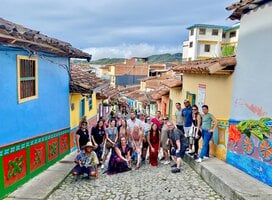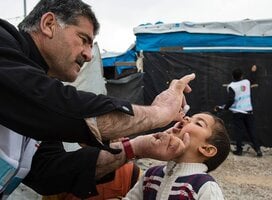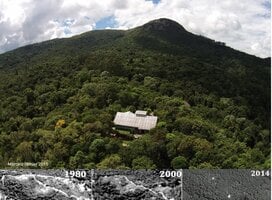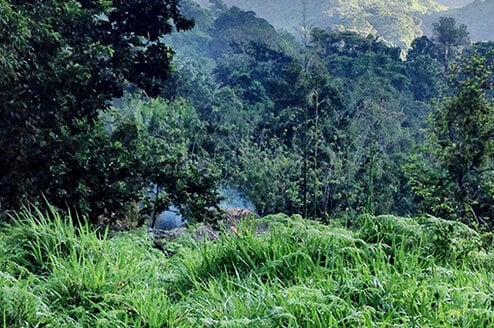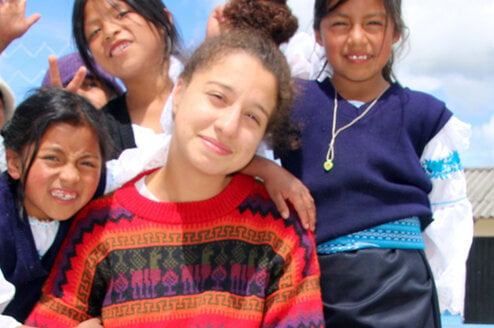High School Abroad in Brazil
Brazil is infused with an undeniable energy and locals have a passion for living life and living it well. Not to mention, with sparkling beaches, the Amazon jungle, and the metropolises of Rio de Janeiro or São Paulo, the country is praised for both its tremendous biodiversity and vibrant cities.
While on a high school abroad program in Brazil, students will get to experience and learn about Brazil's culture, nature, and lifestyle. Whether it's on a teen travel tour exploring this vast country, or staying with a host family and learning Portuguese on a language immersion program, students will have an incredible time while abroad in Brazil.
Brazil is great for students who are interested in environmental conservation, soccer, learning Portuguese, exotic fruits, and dance.
Students interested in spending time in Brazil can choose from:
- A high school exchange
- Language immersion program
- A teen travel tour
High School Exchanges
Students looking to fully experience the Brazilian lifestyle can participate in a high school exchange for a semester or a year. As the country’s official language is Portuguese, students should have some knowledge of Portuguese before enrollment. Knowing this, some schools provide international students with intensive Portuguese language courses for a few weeks before general classes start.
Since Brazil is in the Southern hemisphere, semesters begin in February and August. Classes focus on the usual math, science, history, and art, so you’ll receive a well-rounded education.
Language Immersion Program
High schoolers looking for a challenge in Brazil can participate in a Portuguese language immersion course. These types of programs vary in length depending on how much time a student has to spend abroad and wishes to dedicated. Shorter courses can last as little as two weeks, while others can stretch for three months.
Immersion programs will usually arrange for a host family so students are truly surrounded by the Brazilian language and culture. Oftentimes, activities like sightseeing, short term travel expeditions and volunteer work are also included or able to be added on.
Youth Travel Tours
Teen travel tours are great for high school students with a short amount of time to spend in Brazil. Specifically organized to maximize the number of experiences, these trips ensure students see and do a lot. Students will have the chance to sightsee at historical attractions, explore Brazil’s beautiful ecosystems, learn a bit of Portuguese and experience Brazilian culture. Tours frequently center on themes like environmental conservation, language, or adventure travel.
Student Visa
Most nationalities are required to obtain a visa in advance to visit Brazil, whether it's a tourist visa or a student visa. (Residents of the United Kingdom are able to visit as a tourist without a visa for up to 90 days.)
Student visa requirements generally include a background check and passport valid for six months beyond the intended departure date. Be sure to give yourself plenty of time to complete the background check and obtain a visa. Generally, students participating in travel programs are given assistance with visa applications.
Housing
Study abroad exchanges and immersion programs usually place students in homestays. This additional level of immersion is a great way for high school students to experience Brazilian culture and it provides a built-in support system.
Teen travel tours, on the othe rhand, usually arrange for students to stay in shared hotel accommodation or hostels.
Costs
Students traveling from North America to Brazil can find flights between $750 to $1,000 USD, while those coming from Europe can pay between $650 to $900.
Brazil is less expensive than Western European and North American countries, but costs can vary substantially between larger and smaller cities. Students budgeting for food, transportation, nights out and additional expenses should expect to spend about $40 USD a day on the high end and less in smaller destinations.
Program costs in Brazil differ depending on location, housing, the length of stay, what amenities are included and the amount of travel. A two-week immersion program can cost $600 USD, while a semester exchange program can be $10,000.
Packing Tips
If you love sun and heat then you will agree, Brazil has marvelous weather year round. The tropical and subtropical climates of this destination mean “winter” lasts from June to August and the temperature hovers between 55 and 65 degrees Fahrenheit (13 and 18 degrees Celsius). High summer is December to February, reaching temperatures of 86 to 104 Fahrenheit (30 to 40 Celsius) with high humidity and frequent rain showers. In Brazil, you should also wear formidable walking shoes for outdoor adventures and use a power and voltage converter to keep your devices charged.
Summer season
- Breathable clothing
- Sunscreen and bug repellant
- A hat
- A rain jacket
- A swimsuit
Winter season
- Bug repellant
- A light jacket for cooler nights
Health
Traces of the Zika virus have been found in Brazil. To learn more about Zika and how to avoid getting infected, read the Washington Post's article on Zika precautions.
Students are recommended to receive Hepatitis A, Hepatitis B, tuberculosis, typhoid, rabies, and yellow fever vaccinations before traveling to Brazil. Be sure to talk to your health care professional regarding where you’ll be in Brazil, as the country is quite large and different vaccinations may be recommended for different destinations.
Health care facilities in larger cities like Rio de Janeiro, Salvador, and São Paulo are comparable to other industrialized countries and most prescriptions and over-the-counter medicines can be found. Outside of major cities though, medical care levels begin to drop.
Mosquito-born illnesses are a concern in Brazil. There have been reports of the Zika virus, Chagas disease, Malaria, Chikunguya, and Dengue Fever. High schoolers are encouraged to take proper precautions by using bug repellant, researching high-risk areas before traveling, and consulting a doctor about taking preventative medications.
Traveler’s diarrhea is not uncommon, especially for travelers who are new to Brazil. Only drink bottled or rigorously boiled water and make sure all food is thoroughly cooked. Avoid ice, as it could be made from unclean water. Stay hydrated and perhaps enlist the help of oral rehydration supplements that can be found at pharmacies. See a health professional if symptoms don’t abate after a week.
Safety
If students follow the advice of their program providers and host families, they should have no safety issues while in Brazil. However, there are a few things you might want to watch out for (and we by no means mean to scare you, only to educate you so that you get through your trip with no hitches!):
High school students traveling to Brazil should remain in groups and stay vigilant in order to have a safe and fun time abroad. It's recommended to avoid the areas surrounding Brazil’s borders, especially with Colombia, as incidents of kidnapping and smuggling have been reported.
It's important to be aware of your surroundings, as snatch-and-grab thieves, pickpockets and robbery are known to occur throughout Brazil. Remain extra observant against theft while in touristy areas and at beaches, hotels, bars, and on public transportation. Instances are more frequently reported at night and in larger cities, but are not uncommon during the day or in more rural locations. Do not carry your passport with you, but instead keep a copy on hand and leave the passport securely locked away.
Generally, travelers are only removed of their valuables during a robbery, but situations have turned violent when victims resist. Remember that personal safety is always more important than any object. If something does occur, file a report with the police to expedite insurance claims.
Monitor all card and bank statements during and after a visit to Brazil, as sometimes cards can be cloned and unauthorized charges made. Kidnappings outside of ATMs and banks are also a known issue. The goal of these “quicknappings” is to force victims to withdraw and hand over large sums of cash or obtain a payoff from the victim’s family. Violence and sexual assault have been reported in relation to these events.
Be cautious of or entirely avoid visiting favelas, the slums surrounding many of Brazil’s cities. Some claim to be “pacified” and may have a police presence, but most favelas are not under the control of police or city officials.
Only take licensed taxis with red license plates that list company information and a phone number. Avoid any local demonstrations as they can turn violent without warning. Guard all beverages while out at bars or restaurants to protect against criminals spiking them with drugs. Always follow local government laws and stay away from illegal drugs and underage consumption.

